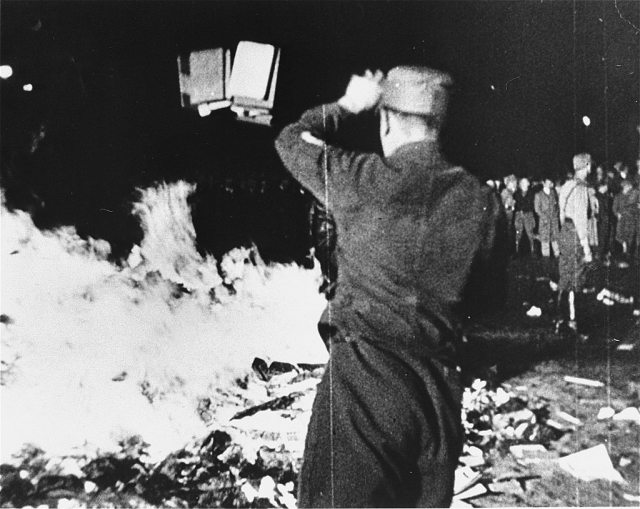Liberal/Left problem with free speech and “the road to hell paved with good intentions”

It appears to many that the drive to curtail free speech at the present time is being driven by the liberal/left. There are many dangers in this approach. The desire to prevent reading or hearing anything that you disagree with is not appropriate to the Western democratic approach. We all get irritated and sometimes angry with what some others might say or write. However, does that mean that we are not prepared to tolerate another viewpoint? Surely if someone feels that a particular viewpoint is wrong then they should have the confidence in their own viewpoint to argue against it. Maybe your views will prevail and you will be persuasive or alternatively you will be persuaded by others' opinions.
It was interesting to read recently that Turner Prize-winning artist, Grayson Perry, no right winger himself by any means, observed that left-wing people have a “tribal culture” that encourages feeling guilty and are less “friendly” than their right-wing counterparts. In an interview with the BBC publication Radio Times: “The left is more venal and has more antipathy to the opposition than the other way round,” Perry said. “I would say the right on average are friendlier and more open.” It is an observation that has growing support and the liberal/left should be aware of this criticism.
This all comes at a time when the row grows over a new Hate Crime Bill in Scotland. Opponents point out that the new laws would have a damaging effect on free speech. Recently an open letter signed by more than 20 individuals and organisations from the world of arts, journalism, literature, comedy, politics and human rights advocacy raised concerns about the Hate Crime Bill. The letter makes the point that: "The unintended consequences of this well meaning bill risk stifling freedom of expression, and the ability to articulate or criticise religious and other beliefs." It goes on to say: "The right to critique ideas, philosophical, religious and other must be protected to allow an artistic and democratic society to flourish." The letter was organised by the Humanist Society Scotland.
There have also been concerns that the laws on possessing "inflammatory material" could even lead to libraries and bookshops being prosecuted for stocking books that are deemed to be offensive.
The Scottish Police Federation has warned that the legislation would force officers to "police what people think or feel" which it says would "devastate the legitimacy of the police in the eyes of the public".
Amanda Millar, president of the Law Society of Scotland, said it was right that laws provide a clear message that hatred should have no place in our society.
"However, we have significant reservations regarding a number of the bill's provisions and the lack of clarity, which could in effect lead to restrictions in freedom of expression, one of the foundations of a democratic society.
"We have real concerns that certain behaviour, views expressed or even an actor's performance, which might well be deemed insulting or offensive, could result in a criminal conviction under the terms of the bill as currently drafted."
The liberal/left supporters of the Bill deny that it is their intention to curtail free speech. However, it seems that they suggest that anything that could be viewed as offensive could result in prosecution. This is very dangerous and offense can be seen as subjective. What offends a person might not necessarily offend another. These people could be suggesting that the publication of the book The Satanic Verses by Salman Rushdie in September 1988 gave offence because some in the Islamic world saw it as an irreverent depiction of Muhammad. Remember that on 14 February 1989 a fatwā ordering Rushdie's execution was proclaimed on Radio Tehran by Ayatollah Khomeini, the so called spiritual leader of Iran at the time, calling the book "blasphemous against Islam". There followed the horrific site of his book being burnt on the streets by religious fanatics. Similar to the public Nazi book burning of the 1930's.
It seems clear that those on the liberal/left who support the bill do not have the intention to replicate the Nazi book burning that took place in Berlin in 1933. The intentions of the Nazi’s at time was very clear. They sought to destroy democracy and free speech. The problem with the Hate Crime Bill in Scotland is the unintended consequences of those promoting what to them is a well meaning bill, but risks stifling freedom of expression. The words: “I wholly disapprove of what you say and will defend to the death your right to say it” have been attributed to the English author Evelyn Beatrice Hall in 1906. She wrote the phrase as an illustration of the beliefs of French philosopher Voltaire. It is a phrase with considerable meaning. We should be free to offend each other. It is fine to be offended by the things that I have written in this short piece. Feel free to disagree with it if you want but should that give you the right to ban it?
Image below: Nazi book burning in Berlin, May 1933.







